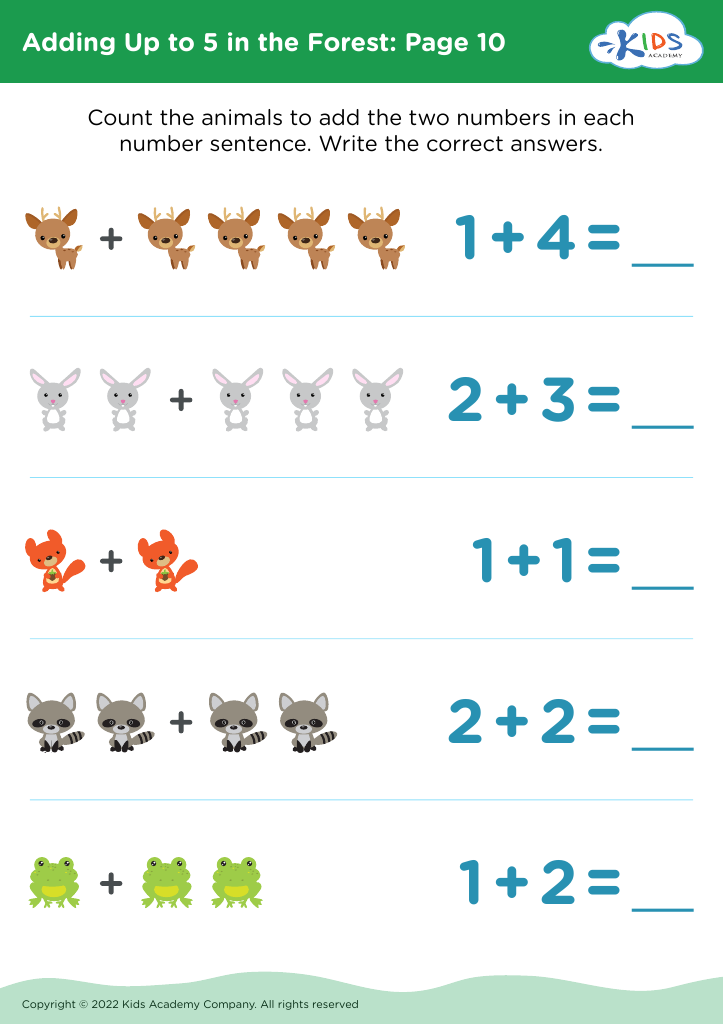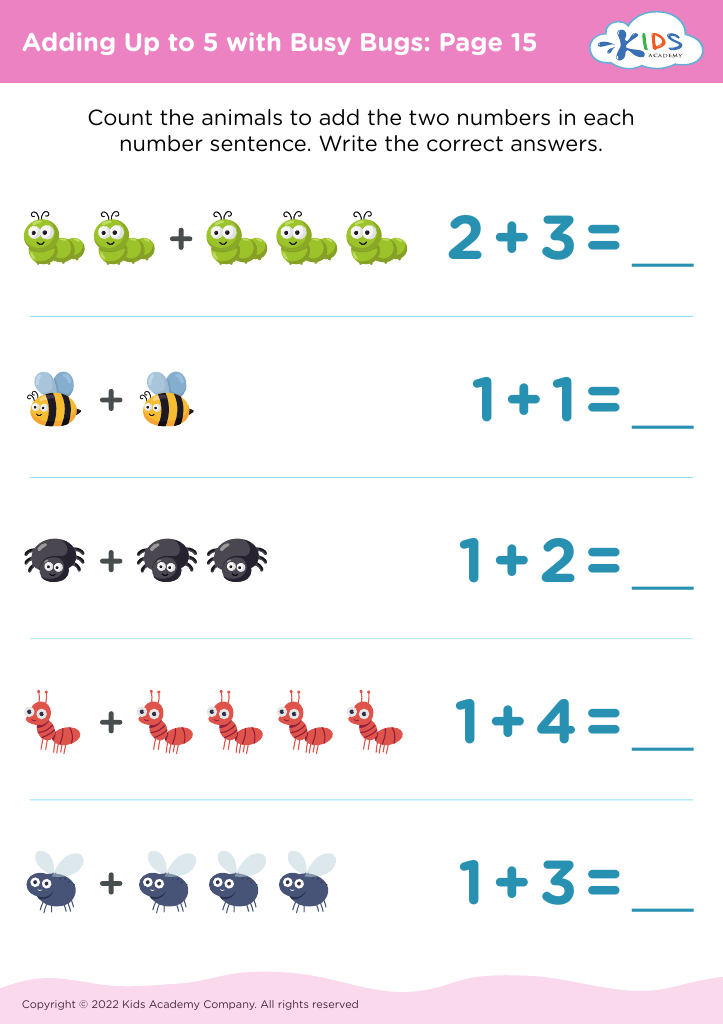Basic Math Skills Math Worksheets for Ages 4-5 - Page 4
79 filtered results
-
From - To
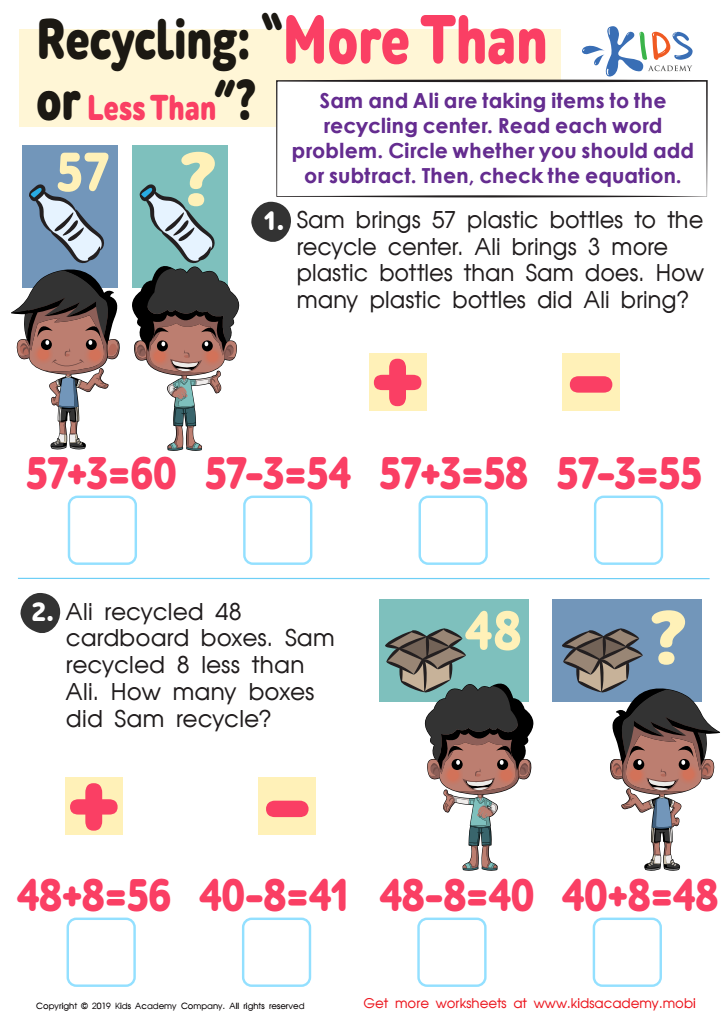

Recycling - More or Less Worksheet
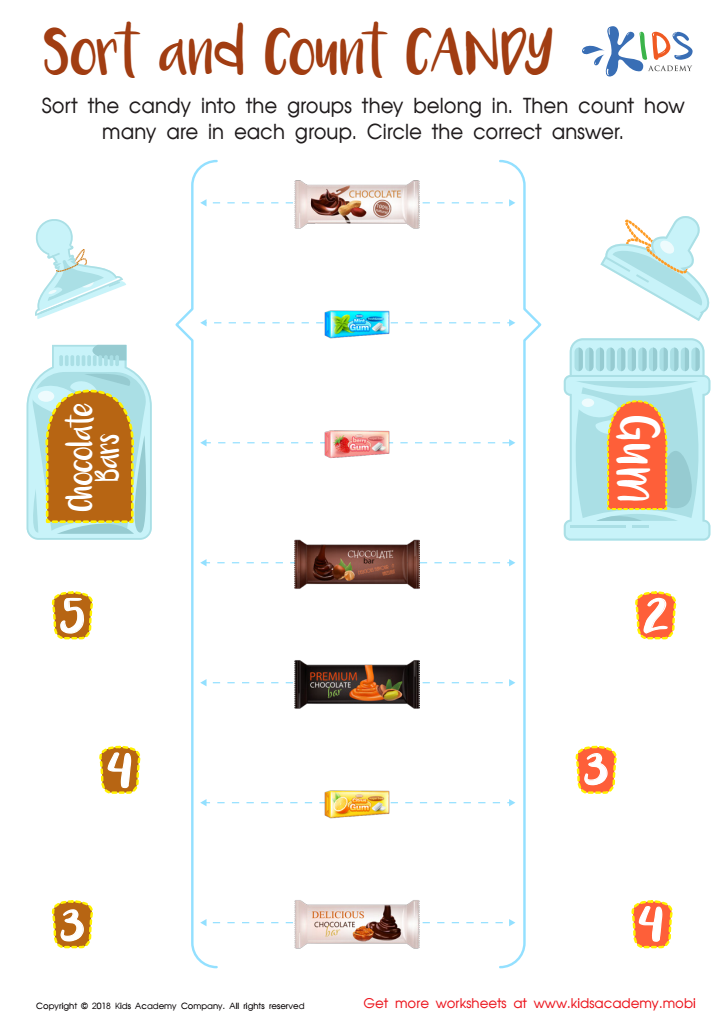

Sort and Count Candy Worksheet
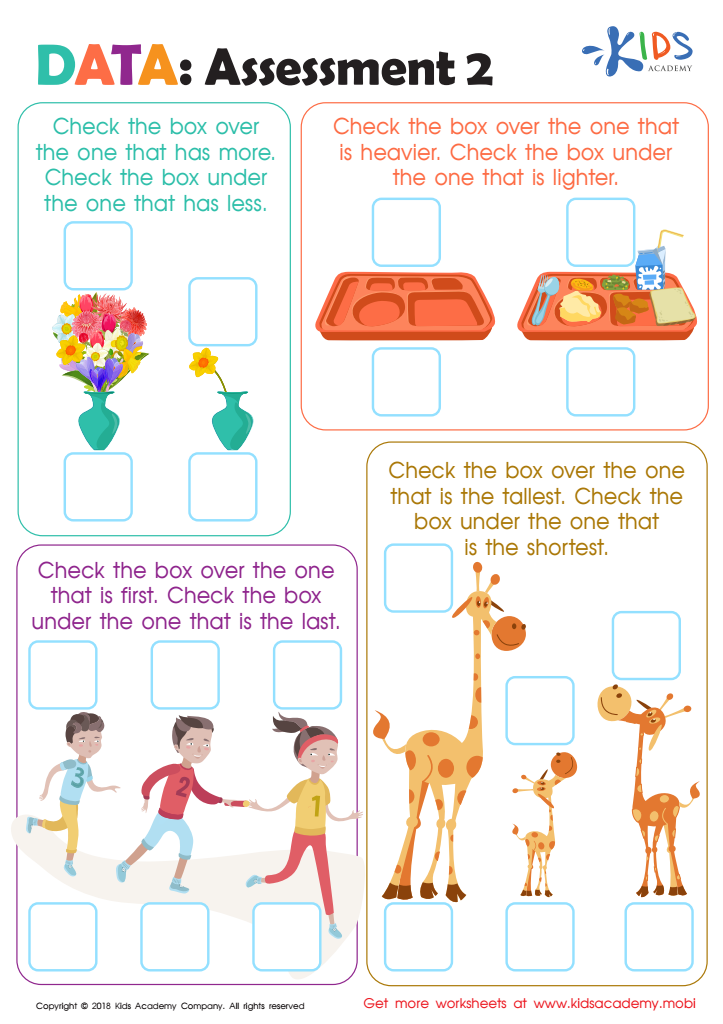

Data: Assessment 2 Worksheet
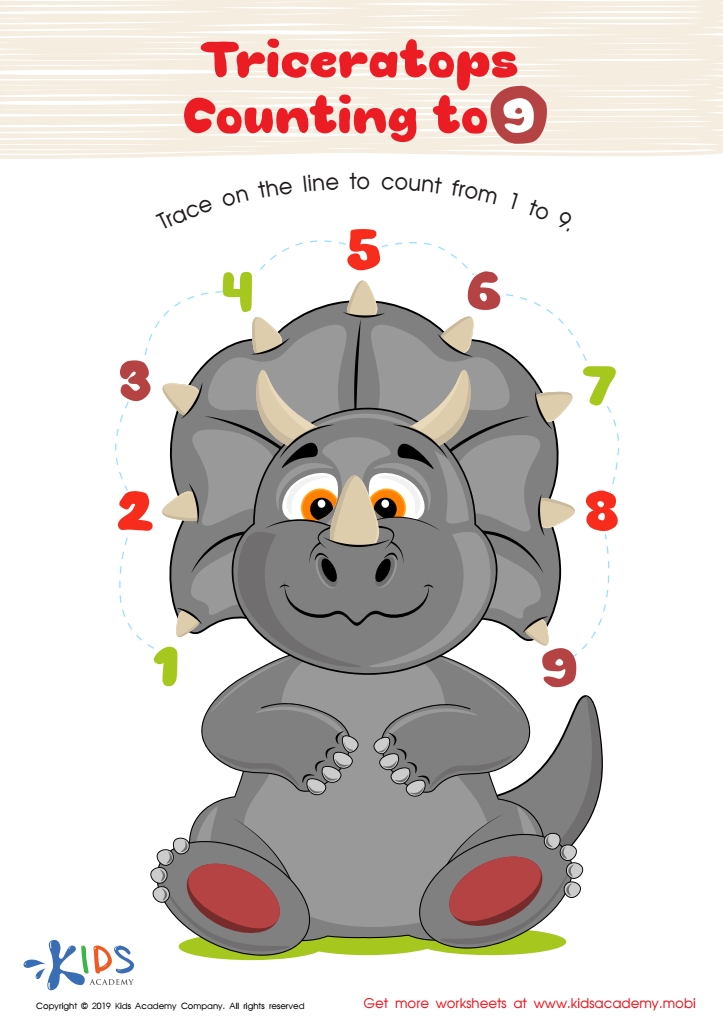

Triceratops Counting to 9 Worksheet
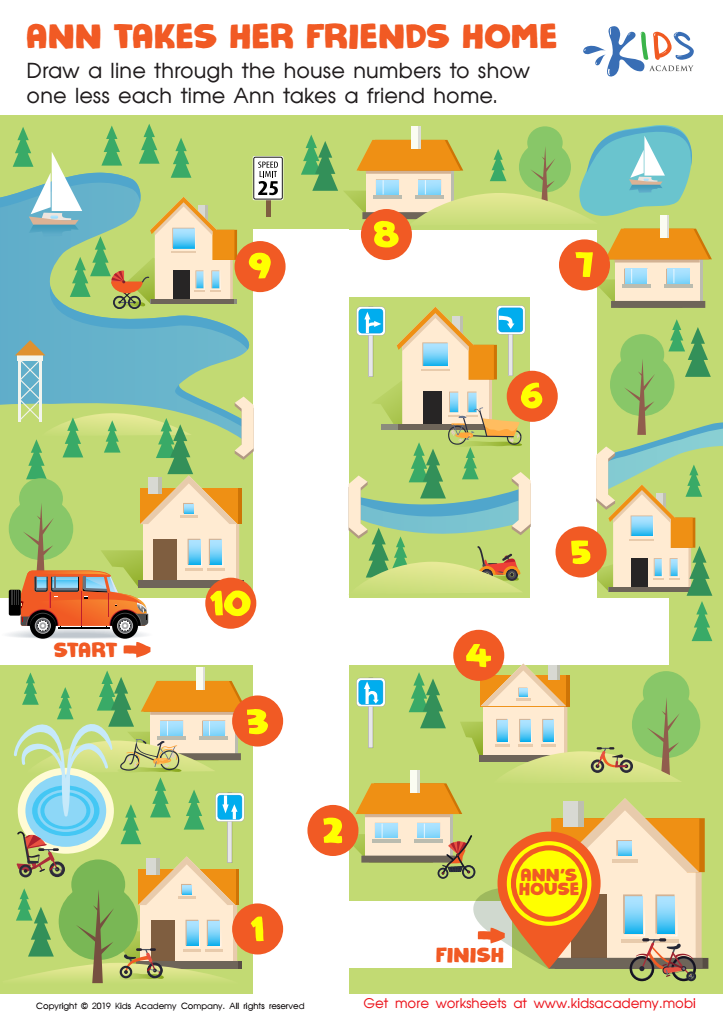

Ann Takes her Friends Home Worksheet
Basic math skills are foundational for children's overall academic success and cognitive development, especially for ages 4-5, as these skills shape their understanding of the world. During this critical stage, children begin to grasp fundamental concepts such as counting, number recognition, and basic addition or subtraction.
Parents and teachers should prioritize basic math skills because they promote logical thinking and problem-solving abilities. Engaging children in math-related activities—like counting objects, sorting shapes, or exploring patterns—can enhance their curiosity and encourage a love for learning. Early exposure to math also fosters confidence, enabling them to tackle more complex concepts in later grades.
Furthermore, strong math skills correlate with success in other subjects, as they enhance reading comprehension and even science abilities. In today’s technology-driven world, numerical literacy is essential, providing tools for everyday tasks like budgeting and time management.
By supporting the development of basic math skills, parents and teachers lay the groundwork for lifelong learning and equip children to navigate and excel in various life situations. Investing time and resources in nurturing these skills at a young age will contribute significantly to a child's academic journey and overall personal development.
 Assign to My Students
Assign to My Students

